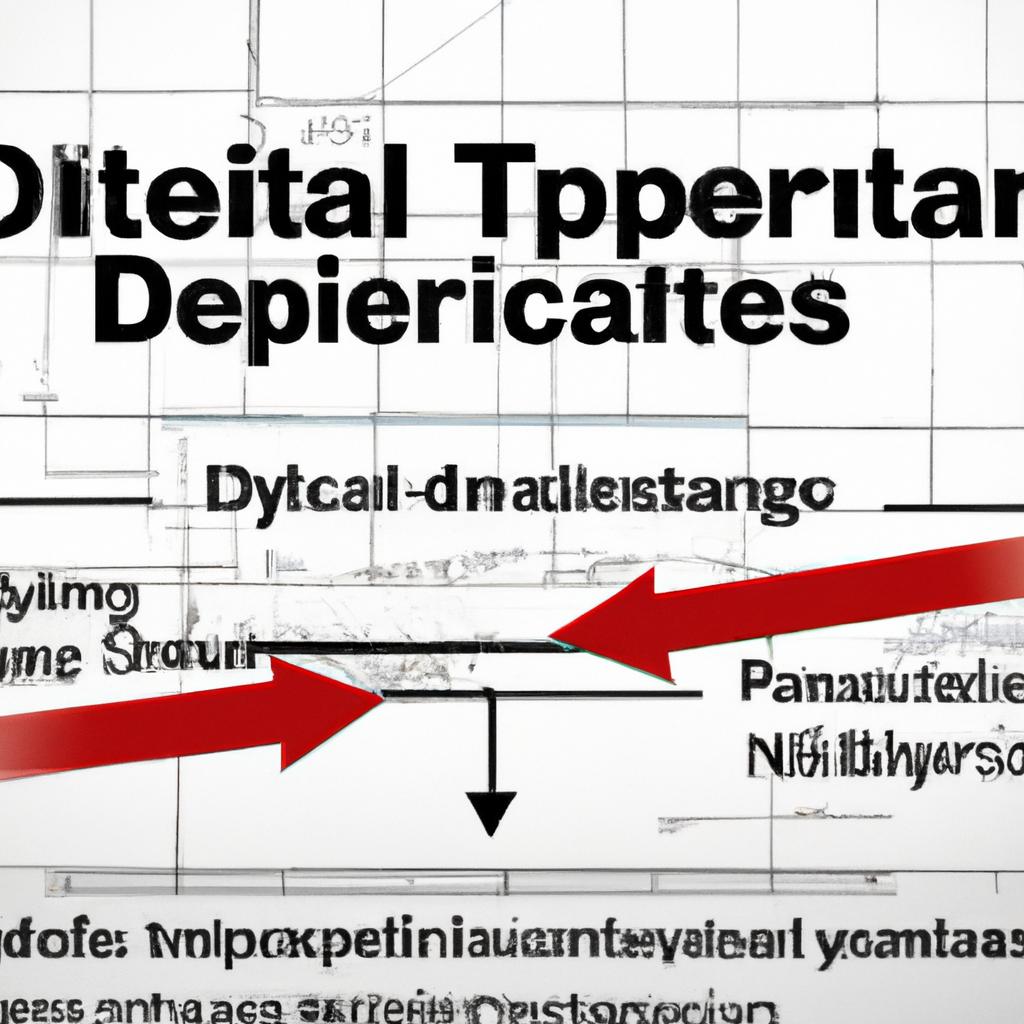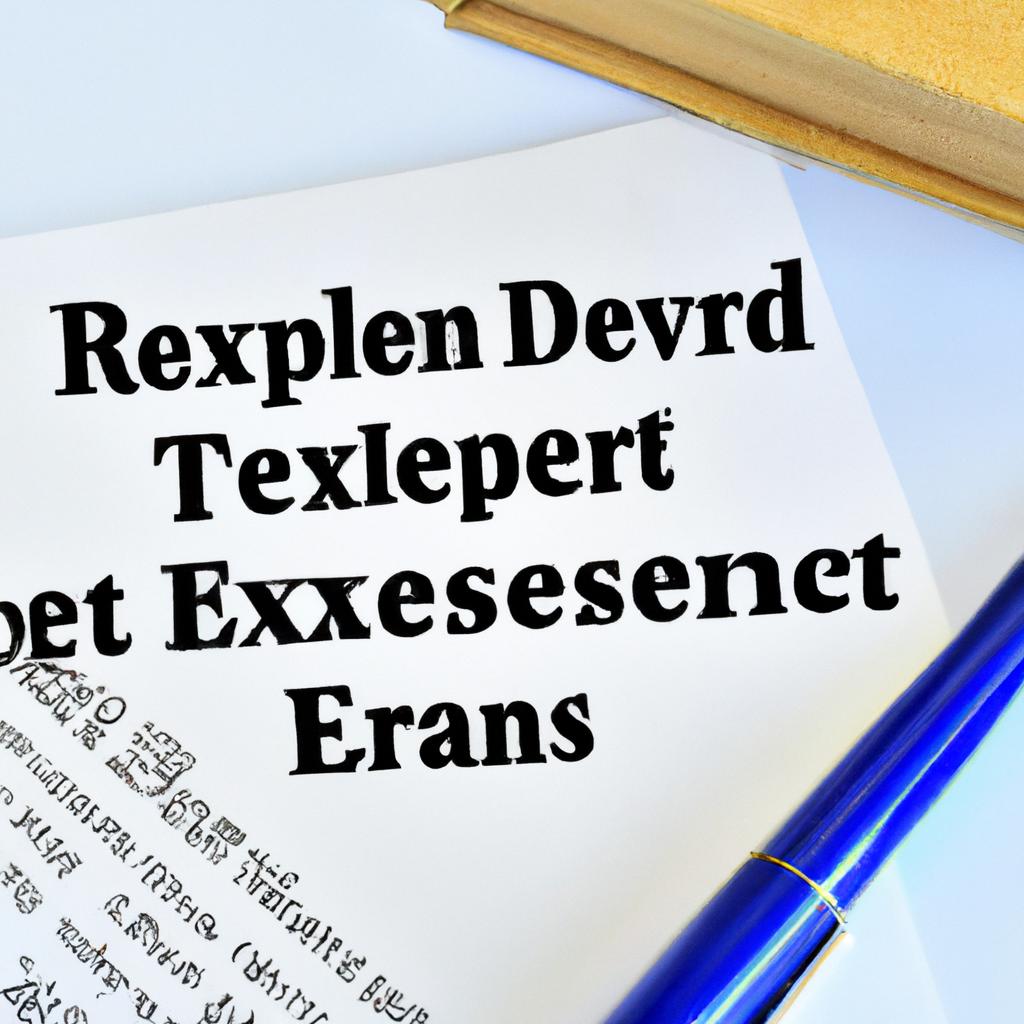In the intricate realm of matrimonial property transfers in the Lone Star State, one legal instrument stands out for its efficiency and effectiveness: the interspousal transfer deed. As experienced legal professionals at Morgan Legal Group in New York City, we navigate the complex landscape of estate planning, probate, elder law, Wills, and trusts, always seeking innovative solutions to ensure our clients’ interests are safeguarded. Join us as we delve into the intricacies of interspousal transfer deeds in Texas, exploring their benefits, limitations, and everything in between.
Understanding Interspousal Transfer Deed in Texas
Interspousal Transfer Deed in Texas is a legal document that allows spouses to transfer ownership of real property between themselves. This type of deed is commonly used in situations where one spouse wants to transfer their interest in a property to the other spouse. It is important to understand the implications of using an interspousal transfer deed, as it can have significant legal and financial consequences.
When using an interspousal transfer deed in Texas, it is crucial to follow the state’s specific requirements to ensure the validity of the transfer. By properly completing and recording the deed, spouses can effectively transfer ownership of real property without the need for probate or other complicated legal processes. It is always recommended to seek the advice of a qualified attorney to assist with the preparation and execution of an interspousal transfer deed to ensure that all legal requirements are met.

Key Benefits of Utilizing an Interspousal Transfer Deed
Interspousal Transfer Deeds can be a powerful tool for married couples looking to transfer real estate property between themselves in Texas. One key benefit of utilizing an Interspousal Transfer Deed is the ability to transfer property without triggering a reassessment of property taxes. This means that the transfer can occur without incurring additional taxes or fees, saving both time and money.
Another advantage of using an Interspousal Transfer Deed is the simplicity and ease of the process. Unlike other methods of transferring property, such as through a traditional sale or gift, an Interspousal Transfer Deed can be a straightforward and efficient way to transfer ownership. Additionally, by using this method, couples can maintain control and flexibility over their property, ensuring that their wishes are carried out according to their desires. Overall, an Interspousal Transfer Deed can be a valuable tool for married couples in Texas looking to transfer real estate property.

Potential Pitfalls to Avoid When Implementing an Interspousal Transfer Deed in Texas
When implementing an interspousal transfer deed in Texas, it is crucial to be aware of potential pitfalls that could arise during the process. One common mistake to avoid is failing to properly execute the deed according to Texas law. It is essential to ensure that the deed is signed by both spouses and that it includes all necessary information, such as a legal description of the property and a statement of consideration. Failure to do so could result in the deed being invalid, leading to complications down the line.
Another pitfall to watch out for is not considering the implications of the interspousal transfer deed on other aspects of your estate plan. It is important to consult with a knowledgeable attorney to ensure that the deed aligns with your overall estate planning goals. Additionally, failing to properly record the deed with the county clerk’s office can result in legal issues and challenges to the transfer of property. By being mindful of these potential pitfalls and seeking guidance from a legal professional, you can ensure a smooth and successful implementation of an interspousal transfer deed in Texas.

Expert Recommendations for Effectively Executing an Interspousal Transfer Deed
When it comes to executing an interspousal transfer deed in Texas, it is crucial to follow expert recommendations to ensure that the process goes smoothly and all legal requirements are met. Here are some key tips to effectively execute an interspousal transfer deed:
To begin with, it is important to clearly outline the terms of the transfer in the deed. This includes specifying the property being transferred, the parties involved, and any other relevant details. Additionally, it is essential to ensure that the deed is properly executed and recorded according to Texas state law. This includes obtaining the necessary signatures, notarization, and ensuring that the deed is filed with the appropriate county clerk’s office. By following these recommendations, you can help to avoid any potential legal issues and ensure that the interspousal transfer deed is valid and enforceable.
Q&A
Q: What is an interspousal transfer deed in Texas?
A: An interspousal transfer deed in Texas is a legal document used to transfer real estate property between spouses.
Q: How does an interspousal transfer deed differ from a regular real estate deed?
A: An interspousal transfer deed specifically transfers property between spouses, while a regular deed is used to transfer property between any parties.
Q: What are the benefits of using an interspousal transfer deed in Texas?
A: Using an interspousal transfer deed can help spouses easily transfer property without the need for a formal sale or transaction.
Q: Are there any potential drawbacks to using an interspousal transfer deed in Texas?
A: One potential drawback is that the transfer may have tax implications, so it is important to consult with a legal professional before proceeding.
Q: Can an interspousal transfer deed be revoked or reversed?
A: An interspousal transfer deed can typically be revoked or reversed, but the process may vary depending on the specific circumstances and legal requirements.
Q: Is using an interspousal transfer deed in Texas a common practice?
A: Interspousal transfer deeds are commonly used in Texas for transferring property between spouses, especially in situations where a formal sale or transaction is not necessary.
In Summary
In conclusion, the interspousal transfer deed in Texas can be a useful tool for transferring property between spouses. It can help streamline the transfer process and avoid potential complications in the future. Whether you are looking to transfer real estate or personal property, consulting with a legal professional is always recommended to ensure that the transfer is done correctly and in compliance with Texas laws. By understanding the intricacies of interspousal transfer deeds, you can effectively navigate the transfer process and secure your property interests. Thank you for reading!
 Interspousal Transfer Deed Texas: What You Need to Know
Interspousal Transfer Deed Texas: What You Need to Know
Are you a resident of Texas looking to transfer property ownership between you and your spouse? If so, you may have come across the term “interspousal transfer deed”. This legal document is commonly used in Texas for transferring real estate between spouses and has several benefits, including potential savings on taxes and avoiding probate. In this article, we will dive into the specifics of an interspousal transfer deed in Texas, including its benefits, process, requirements, and more.
What is an Interspousal Transfer Deed?
An interspousal transfer deed, also known as a interspousal deed or a transfer on death deed, is a legal document used to transfer ownership of real estate between spouses. It is often used by couples who want to transfer their property without going through the probate process or in cases of divorce.
This deed is recognized in Texas under the state’s Family Code § 5.022 and is governed by strict legal guidelines. The transfer must be made with both spouses’ consent and cannot be used to transfer property to a third party. Furthermore, the deed must be notarized and recorded with the county clerk’s office where the property is located.
The Benefits of Using an Interspousal Transfer Deed
Now that you have a basic understanding of what an interspousal transfer deed is let’s take a closer look at its benefits.
1. Avoiding Probate
One of the most significant advantages of using an interspousal transfer deed is that it allows you to bypass the probate process. Probate is the legal procedure of distributing a deceased person’s assets according to their will or state laws, which can be time-consuming and expensive. By transferring property through an interspousal deed, the property goes directly to the surviving spouse without the need for probate.
2. Potential Tax Savings
Transferring property through an interspousal deed can also result in potential tax savings. In Texas, property owners are eligible for a homestead exemption on their primary residence, resulting in lower property taxes. By transferring the property to the surviving spouse, this exemption can be maintained, resulting in significant tax savings.
3. Simplified Process
Using an interspousal transfer deed simplifies the process of transferring property, as it does not require a court order or permission from other family members. This can be especially beneficial in cases of divorce, as it allows for a quick and easy transfer of property ownership.
The Process of Creating an Interspousal Transfer Deed in Texas
Now that you understand the benefits of an interspousal transfer deed, let’s take a look at the process of creating one in Texas.
Step 1: Determine Eligibility
To use an interspousal transfer deed, both spouses must be legally married and must consent to the transfer. Additionally, the property must be the couple’s primary residence, and it cannot be owned jointly with anyone else.
Step 2: Obtain the Form
The couple must obtain an official interspousal transfer deed form from the county clerk’s office or an attorney.
Step 3: Fill Out the Form
The form must be completed with the transferor’s and transferee’s information, a legal description of the property, and the notary’s signature.
Step 4: Notarize the Deed
The document must be notarized in the presence of a notary public.
Step 5: Record the Deed
The completed and notarized deed must be recorded with the county clerk’s office in the county where the property is located. The recording fees may vary from county to county.
Requirements for an Interspousal Transfer Deed in Texas
To ensure the validity of an interspousal transfer deed, certain requirements must be met before its creation and recording.
1. Primary Residence
As previously mentioned, the property subject to the transfer must be the couple’s primary residence. This means that the spouses must live in the home and use it as their main place of residence.
2. Consent of Both Parties
Both spouses must consent to the transfer in writing and must sign the document in the presence of a notary public.
3. Legal Description
The deed must include an accurate and complete legal description of the property, which can typically be found on the property’s title or tax records.
4. Notarization
The deed must be notarized to verify the authenticity of both spouses’ signatures.
Conclusion
In conclusion, an interspousal transfer deed is a useful tool for married couples in Texas, allowing for a quick and straightforward transfer of property ownership between spouses. It offers several benefits, such as avoiding probate, potential tax savings, and a simplified process. However, it is crucial to ensure that all requirements and procedures are followed carefully to ensure the deed’s validity. Consider consulting with a legal professional to ensure that your interspousal transfer deed is drafted accurately and meets all legal requirements.






